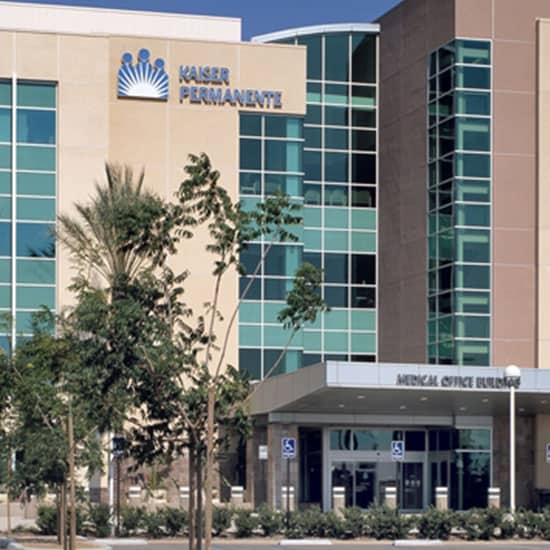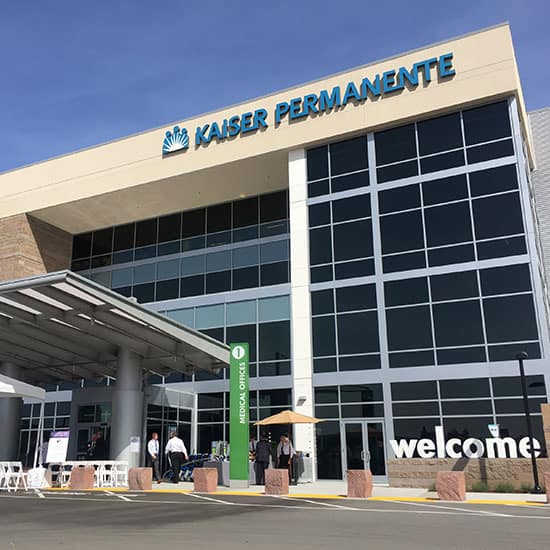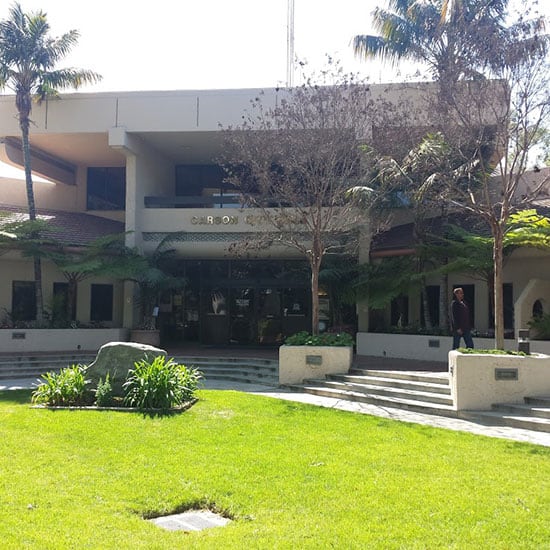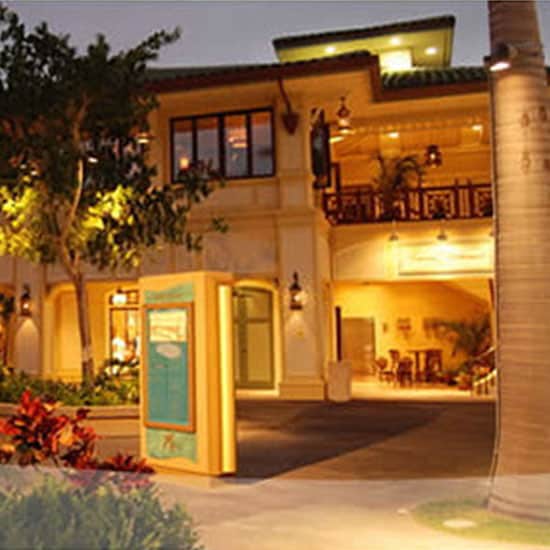Kaiser Permanente
Ontario, CA. Microgrid Project

Project Overview
Healthcare facilities have some of the most intensive electrical power needs of all commercial buildings and are arguably some of the most essential public infrastructure worldwide.
With increasing pressures to be sustainable and resilient while remaining cost-effective, healthcare organizations must deploy innovative tools and applications to meet these objectives.
The California Energy Commission (CEC) has funded a team led by Charge Bliss, Inc. to design, engineer, build, and operate the first-of-its kind solar + battery + fuel cell and controls system (a Multi-DER Microgrid) to be interconnected to the “critical branch” electrical circuit of a California healthcare facility in order to demonstrate these concepts.
The Location
Kaiser Permanente (KP) in Ontario, California is a full-service general hospital located in an air-quality and economically disadvantaged community.
Project Details
The facility will undergo interconnection to the essential power of 2.2MW of on-site solar generation, 9MWh battery energy storage solution and controller, integration of the on-site 1 MW fuel cell, and existing backup diesel generators.
Thus, whether the facility is subject to planned or unexpected power outages, this “islandable” microgrid will coordinate the diverse distributed energy resources (DER) to allow continued facility operation for ten hours or longer and provide comprehensive healthcare to its surrounding community without disruption.
Project Goals
During routine operation, the system will optimize technical and financial performance using artificial intelligence tools.
Combining the resulting performance data with that from the installation at KP Richmond will allow the projects to model Virtual Power Plant (VPP) functionality and to participate in utility ancillary services markets.
Ultimately, the project will demonstrate how critical public infrastructure may benefit from prolonged support of electrical systems, significant conversion to clean energy consumption and sustainability, notable cost savings from averted energy and demand expenses, and contribution to grid stability.
Kaiser Permanente
Richmond, CA. Microgrid Project

Project Overview
Design and install a renewable microgrid consisting of 250kw solar PV structures utilizing SunPower modules (on top of the existing parking garage), 1 mWh battery storage (Samsung), Princeton Power inverters, LED lighting, and NextGen Microgrid Controller.
Charge Bliss developed, designed, and engineered the project and was subsequently awarded a grant by the California Energy Commission (CEC) to implement the idea and perform the construction.
The Issue
Commercial businesses face rapidly increasing pressures to decrease costs to remain solvent.
Energy has long been considered a fixed expense that inexorably rises, but the advent of more reliable renewable energy generation, standing energy storage, power conditioning, and control systems have changed this paradigm.
Moreover, concerns about the reliability and environmental impact of carbon-based fuels and increasing public desire for commercial entities to be “green” has forced owners and operators to consider the values of a Renewable Distributed Energy Resource (R-DER).
The question is how to further incentivize the general public to move forward with these types of projects.
One key is to prove that the integration of these technologies is viable, economically, and environmentally advantageous, and tangible.
Therefore, the Charge Bliss Team, in collaboration with the California Energy Commission (CEC), and the Office of Statewide Healthcare Planning and Development (OSHPD), proposed an R-DER for the Kaiser Permanente Hospital in Richmond, California.
This case study demonstrates the safety, feasibility, and value of a Charge Bliss R-DER not only for California hospitals but also for all other types of medium to large commercial buildings in the State and beyond.
Project Innovation
The R-DER at Kaiser in Richmond is the first deployment of large scale solar, battery, and automated power conditioning and controls at a non-University hospital in the State of California. Moreover, the system is unique in that OSHPD permitted dual points of common coupling on the “normal” and “life and safety” power systems.
The latter connection allows the facility to further support critical systems when Utility power is inadequate or unavailable as compared to conventional systems that must shut down under these circumstances.
A novel control architecture embedded within the Charge Bliss R-DER provides at least three hours of power during a utility outage, regulates the generation, storage, and deployment of energy, reduces peak facility demand, and permits participation in automated demand response (ADR).
Project Benefits
The R-DER reduces facility energy and demand costs, electrical system downtime, greenhouse gas emissions, and demonstrates the benefits of ancillary value streams such as efficiency from improved power quality and demand response.
The design is scalable and the achievements herein may be amplified substantially in larger projects.
Lower Costs:
This project is projected to save $141,000 per year in direct energy costs for the site owner (997,000 kWh/yr x $0.1418/kWh) and create efficiencies in both usage and demand (automated demand response).
Greater Reliability:
This R-DER increases electric reliability to the facility by providing up to 1 MWh of reserve power and may improve regional reliability through decreased strain on the serving Utility, demand mitigation, and demand response.
Environmental Benefits:
The R-DER is projected to reduce greenhouse gas emissions by 263 tons of carbon dioxide per year (997,000 kWh/yr x 0.5888 lbs/kWh).
Public Health:
By utilizing energy storage the microgrid is designed to provide at least three hours of power during a utility outage for critical hospital facilities that are essential during mass casualties or illnesses.
The San Benito Health Foundation
Project Overview
Charge Bliss teamed up with Day One Solar to submit a Request for Proposal to San Benito Health and Mynt Systems.
The facility found our proposal, as well as the design team we put together, to be the most responsive to their needs.
Charge Bliss served as the Microgrid Design Consultant for this project and developed a system that would achieve the goals of the leadership of San Benito Health.
City of Carson
Carson, CA

Project Overview
Create, develop, and design a Net Zero Advanced Energy System for the city which accelerates the deployment of advanced energy communities.
The technologies consist of 3.5 mW solar PV, ~100 EV chargers, energy storage, LED lighting, and more.
This project was also awarded a grant by the California Energy Commission (CEC) and will significantly decrease energy expense in a disadvantaged community, increase power reliability, decrease fossil fuel emissions, decrease strain on the Investor Owned Utilities (IOU’s), and California Independent System Operator (CAISO), and boost the adoption of EV’s.
Shops at Mauna Lani

Project Overview
Installation of the first dual fast DC EV charger in the state of Hawaii.
CBI proposed, designed, and executed the installation and operation.
Inergy Systems
Los Angeles, CA

Project Overview
Installation of building system controllers that provide demand management in a facility that consists of solar PV, HVAC, pumps, and other electrical loads. COD 2015

